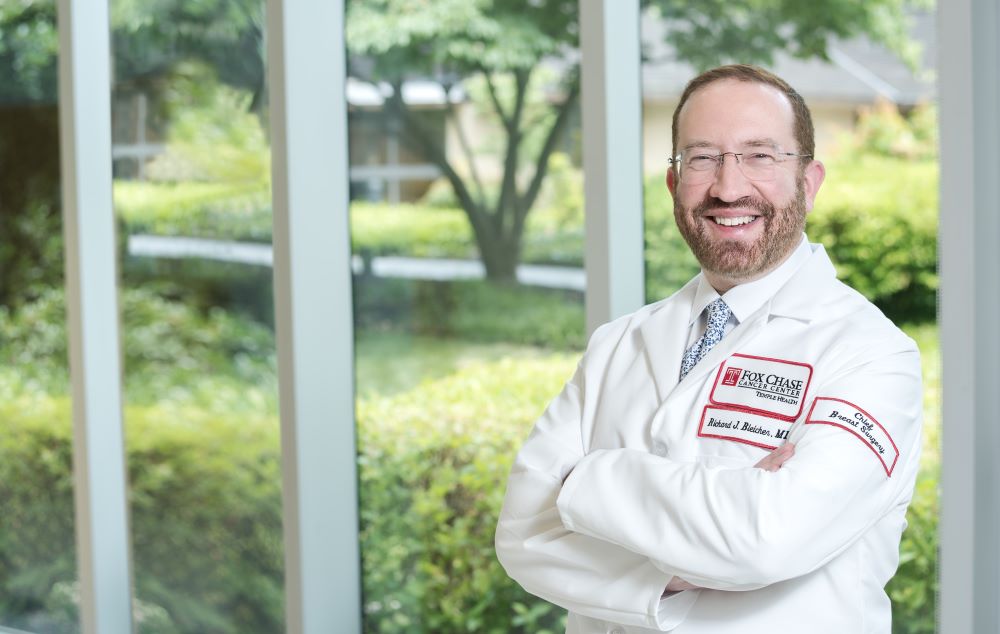Weather Alert: Following the winter storm, all Temple Health hospitals, campuses and clinical locations remain open. Patients will be contacted directly if their visit is affected. Please check TempleHealth.org or FoxChase.org for updates and monitor myTempleHealth for changes to scheduled appointments.
Breadcrumb
- Home
- Novel Fox Chase Cancer Center Study Uses New Methods to Show How Fast Breast Cancers Grow and How Surgery Delays Affect Cancer Staging
Novel Fox Chase Cancer Center Study Uses New Methods to Show How Fast Breast Cancers Grow and How Surgery Delays Affect Cancer Staging

PHILADELPHIA (July 24, 2025) — Using a novel method to analyze tumor growth rates, researchers at Fox Chase Cancer Center have provided the most in-depth assessment to date of how fast breast cancers grow in patients and how surgical delays may affect breast cancer staging, which measures the extent of cancer spread in the body. The newly published study offers new insight into how tumors progress in the time between diagnosis and surgery.
“It’s the first study ever to use pathologic tumor sizes to determine how fast tumors of different sizes and traits grow in the patient while they’re waiting for treatment,” said Richard Bleicher, MD, FACS, lead author on the study and Chief of the Division of Breast Surgery at Fox Chase.
Pathologic tumor size refers to the size of a tumor after it is surgically removed from the patient and examined. Clinical size, which is determined by imaging equipment such as X-rays or CT scans before surgery, is typically less accurate.
“Patients who are diagnosed with breast cancer are always worried about how fast breast cancer grows while they wait for their surgery and the likelihood that it will spread from that growth,” Bleicher said. “This study finally gives patients and their physicians that information for tumors of different sizes and types to make the best decisions they can.”
The study, which Bleicher conducted with several colleagues at Fox Chase, found that the upstaging rates associated with delays are still relatively small and consistent with prior data showing that even months-long delays between diagnosis and surgery result in only single-digit mortality risks. Upstaging refers to when a patients localized cancer spreads to other parts of the body.
“Many patients fear that delays in care will allow their cancer to grow and spread beyond the point of cure. This study provides the most comprehensive evaluation of how treatment delays may affect the likelihood that a tumor will be upstaged or be at a more advanced stage at the time of surgery than initially estimated at diagnosis,” Bleicher said.
The research team used the differences between the initial clinical tumor size and the pathologic tumor size to calculate growth and upstaging risk between diagnosis and surgery. Accounting for inaccuracies in clinical staging, this method more accurately demonstrates the associated risks of tumor growth and progression.
The study utilized data from the National Cancer Database for over one million patients treated between 2010 and 2020. These patients had non-metastatic, non-inflammatory breast cancer and were undergoing surgery as their first treatment.
“Interestingly, a significant proportion of the observed upstaging is not from tumor progression, but from the inaccuracy of clinical staging. In other words, when breast cancers are upstaged at surgery, it’s more likely because we didn’t appreciate the initial extent of disease than because the tumor had time to spread,” said Bleicher.
“The findings in this study expand our knowledge and offer new data to help counsel individuals diagnosed with breast cancer. As we continue to refine our diagnostic tools and clinical assessments, we will reduce the risk of upstaging even further,” he added.
“We may not be able to stop time, but armed with this new knowledge, we can use it more wisely, empowering patients to ensure that they feel urgency and not fear.”
The study, “Breast Cancer Upstaging Risk and In Vivo Tumor Growth Rates Associated With Preoperative Delays,” was published in the Annals of Surgical Oncology.